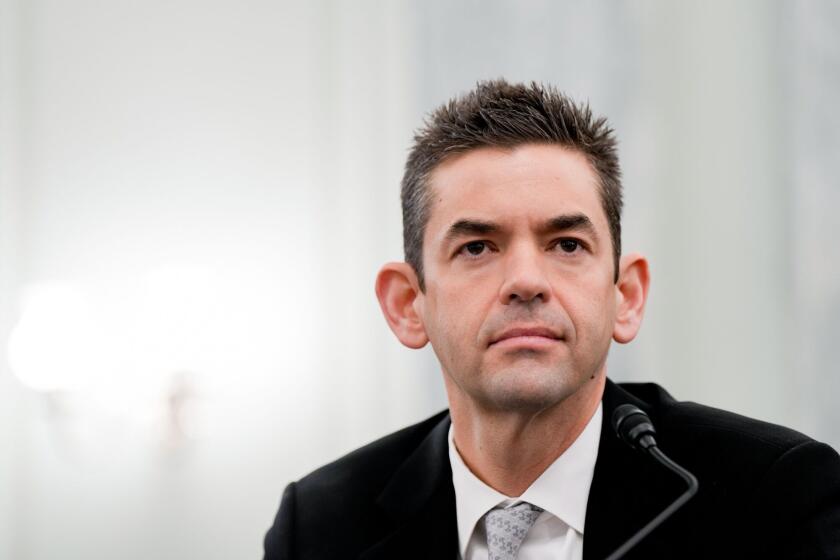Share of CSU students who now have healthcare exceeds expectations
- Share via
New data show the number of students without health insurance on California State University campuses dropped by 60% after Obamacare enrollment, defying concerns that not enough young people would sign up for health insurance.
The Affordable Care Act, the national healthcare law, requires that nearly everyone have insurance in 2014.
During the open enrollment period that ended in April, some officials worried that if not enough young, healthy people signed up for coverage, insurance companies would be left with too many sick and expensive customers, which would eventually cause carriers to raise premiums.
According to a poll released Thursday, at the 15 largest CSU campuses, approximately 30% of students were uninsured before enrollment began, and 10% were uninsured after. The drop accounts for 60,000 students who became insured, and illustrates the late surge of young people who signed up for policies.
“These students proved that the folks we’re calling ‘young invincibles’ do want health insurance,” said William Covino, president of Cal State Los Angeles.
The university system received a grant from Covered California, the state’s health insurance exchange, to launch the CSU Health Insurance Education Project, which started Obamacare outreach and enrollment assistance last August.
Walter Zelman, chairman of the Cal State L.A. Public Health Department and director of the project, says that he believes the 10% uninsured rate among the students is “virtually unheard of in California.”
He pointed out that the 60% drop in the number of uninsured CSU students is vastly higher than the 26% reduction in the number of uninsured nationwide that was reported by a Gallup poll this month.
CSU students were perhaps more inclined to sign up for insurance than expected because many are low-income and therefore qualify for Medi-Cal, the state’s free low-income health program that was expanded under Obamacare.
People who make too much money to qualify for Medi-Cal must purchase a plan through an insurance company or through Covered California — which provides premium subsidies based on income.
According to the poll, roughly half of the students who signed up for insurance for the first time enrolled in Medi-Cal, and the other half through Covered California. The figures do not include students covered by their parents’ insurance earlier as part of Obamacare.
Natasha Buranasombati, 23, signed up for an insurance plan through Covered California. A recent Cal State L.A. grad, she’d been off her parents’ insurance for a few years, and couldn’t afford a plan on the individual market. She now pays $117 a month for her new plan.
“The issue is not invincibility — it’s affordability,” Zelman said.
Zelman said the results show that students are a large, young uninsured population that can be targeted for insurance sign-ups, especially when outreach is done by educators they already trust on campus.
“The surprise here may be that students are not the hardest groups to enroll — they may be the easiest,” he said.
Yvette Fuentes, an L.A. campus coordinator for the project, said that she explained the costs and benefits of health insurance in terms students could relate to.
“You could easily spend $50 on dinner and drinks,” she said, referring to a hypothetical $50 monthly insurance premium. “Why don’t you budget it for this instead?”
She said that with the student population, which generally doesn’t require much medical care, she had to emphasize the risk of accidents that could wipe out a student’s entire budget without insurance.
Overall, 1.4 million people signed up for plans through Covered California during open enrollment. Los Angeles County led the state with more than 400,000 enrolling, making up almost 30% of the statewide total.
soumya.karlamangla@latimes.com
Follow me on Twitter at @skarlamangla






